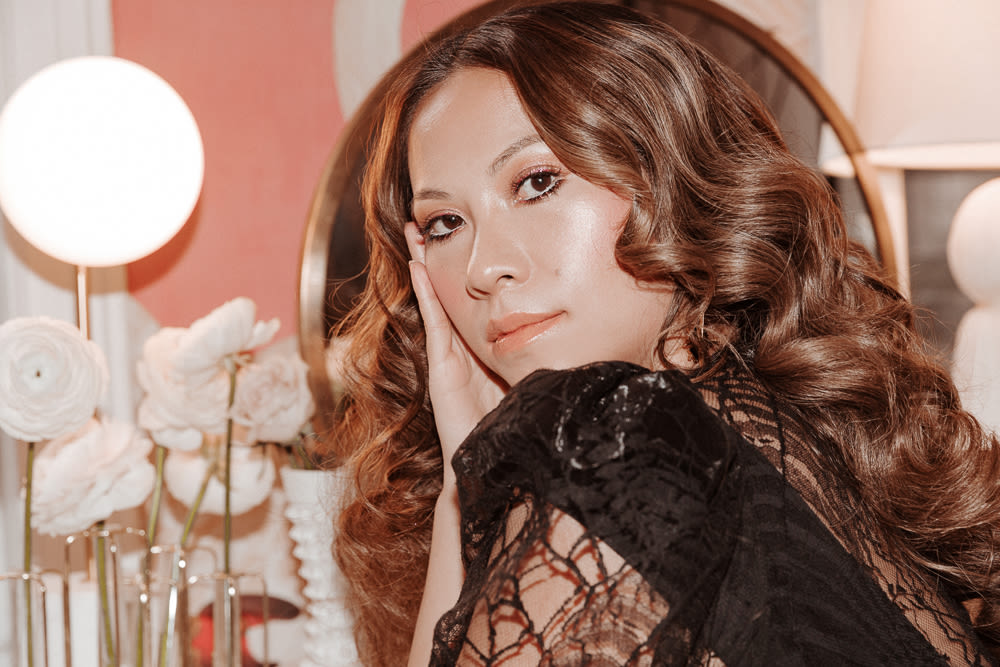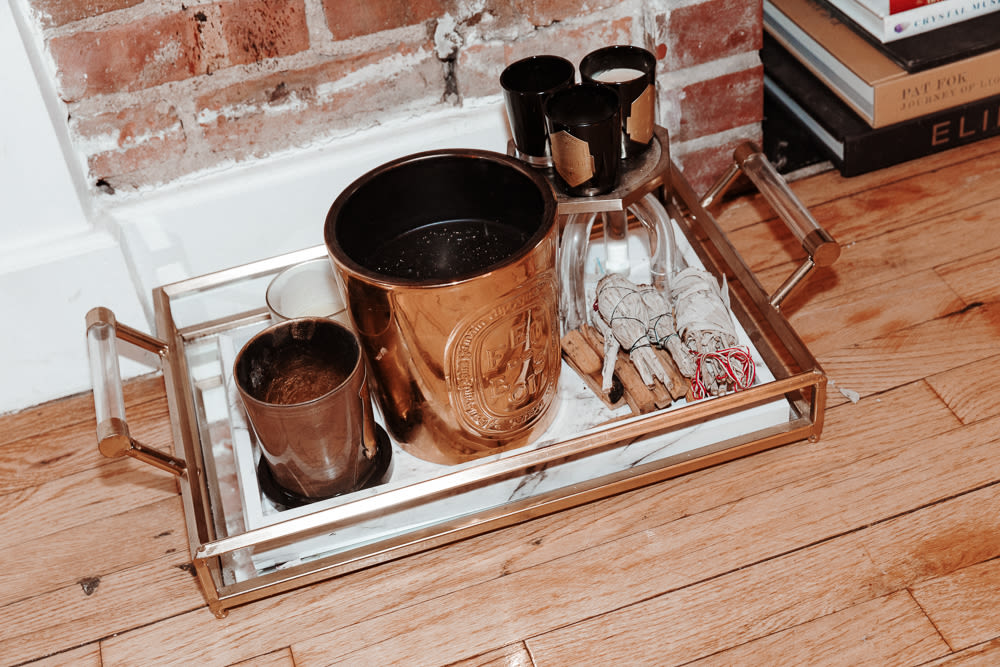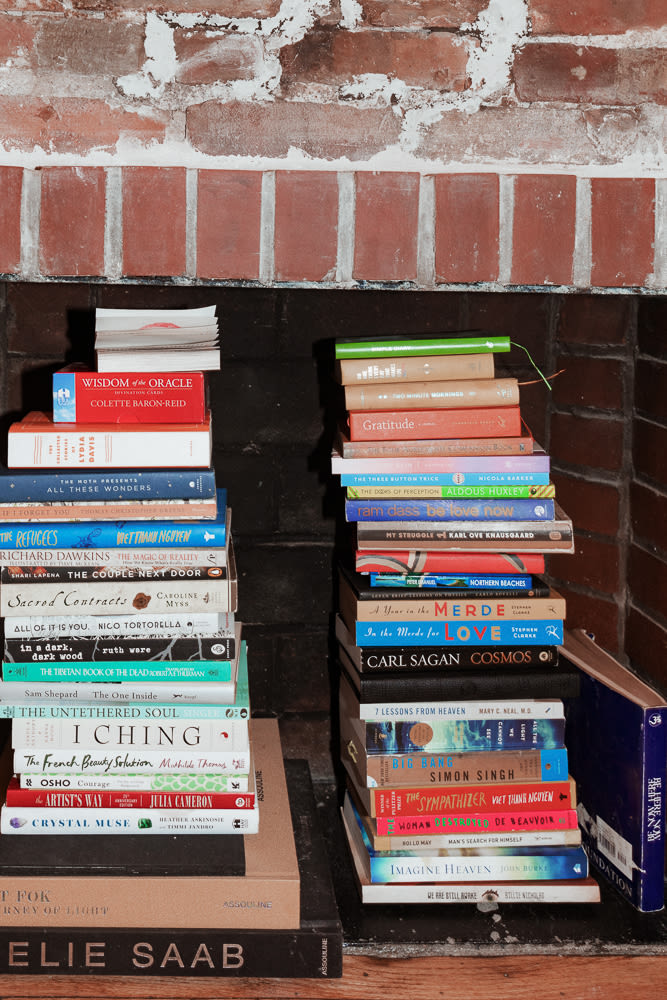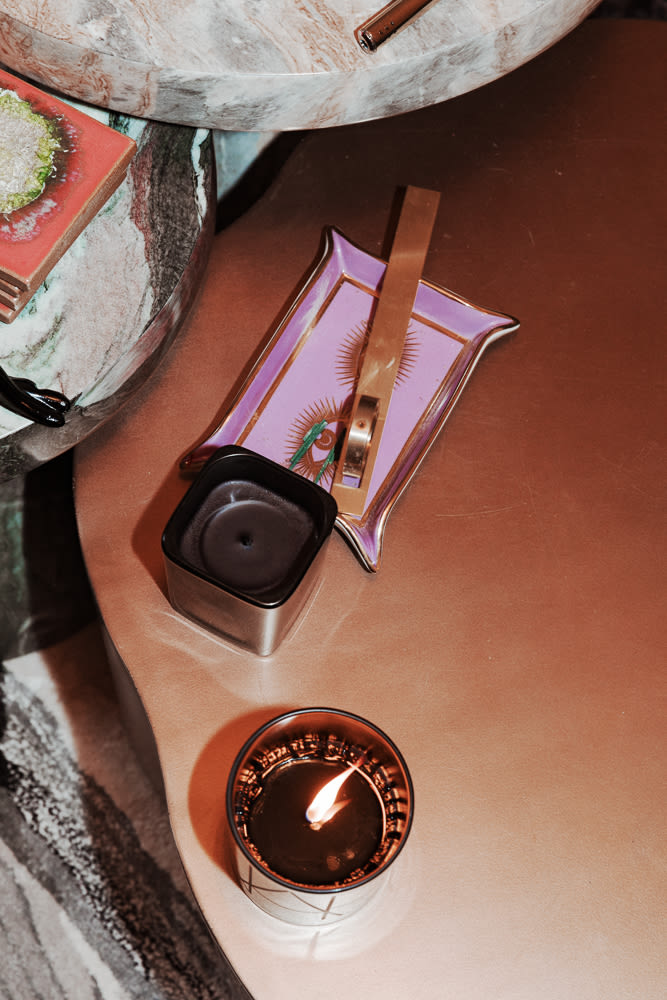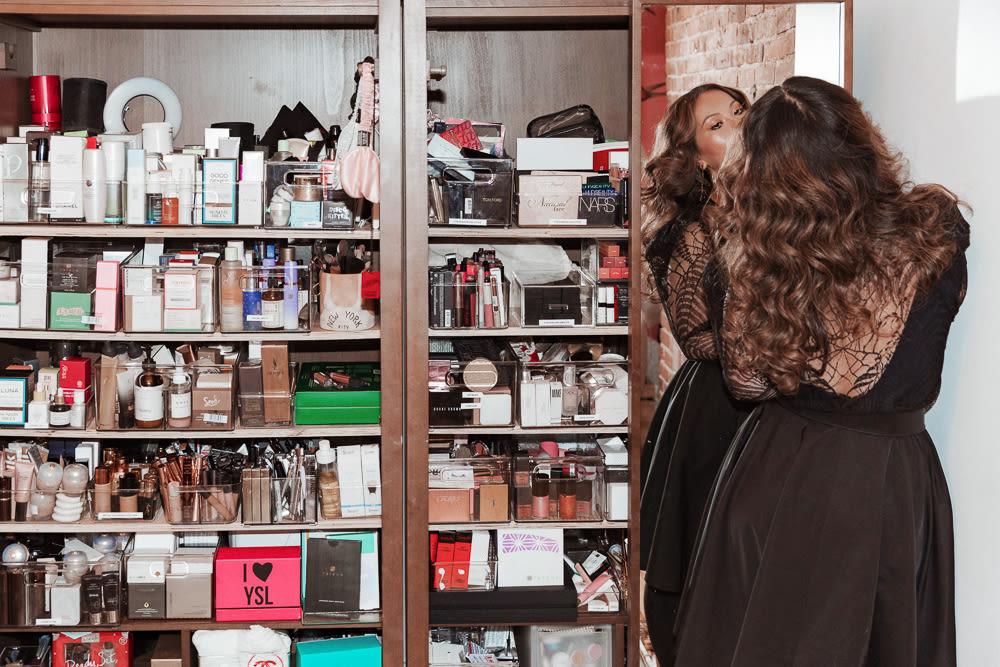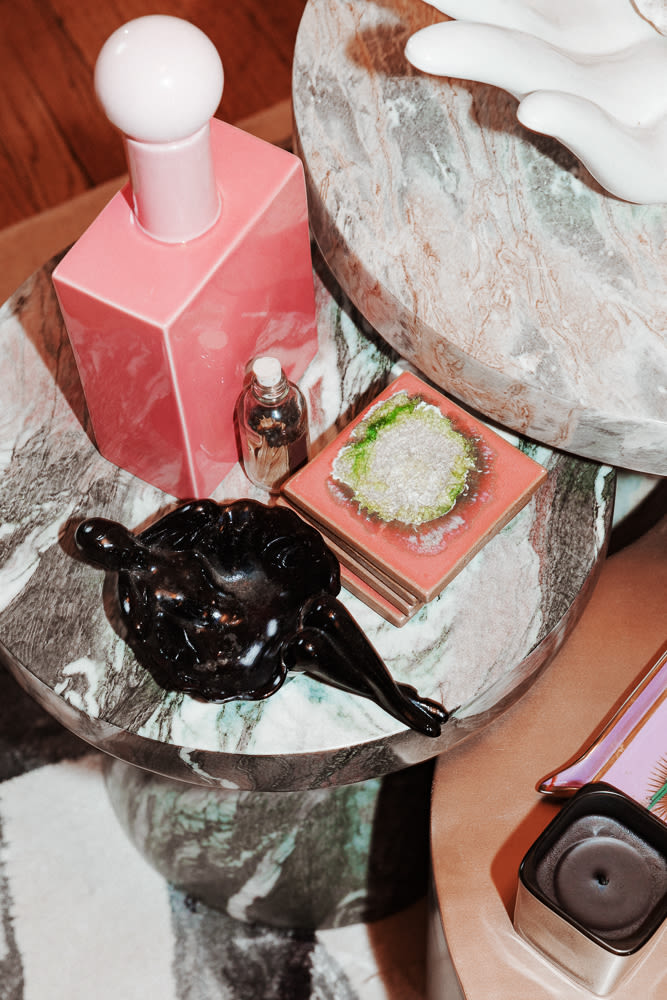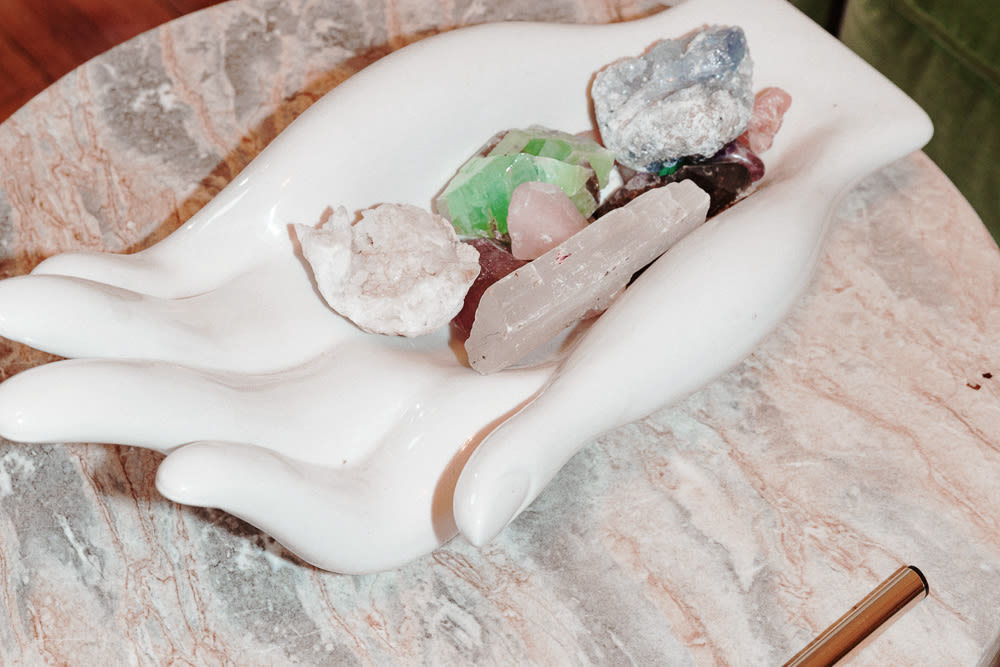“My whole life I’ve been a makeup artist. It’s very natural for me—since I was a kid, I’ve always been obsessed with glamour and actresses. I’m a visual person and I was never good at school. I can’t count, I can’t spell, I don’t know directions. Literally, my mind rejects numbers and letters, and I’m dyslexic, but visually I can remember what you wore. Ten years from now I’d remember you wore a great sweater when I met you.
I’m Vietnamese, and I was born in San Jose, California. I remember being in the eighth grade when MAC Cosmetics started to happen. I had never seen anything like it—they had professional colors, and there were like 20 professional makeup brushes. I was always watching the MAC girls at the mall—that was probably the first time I ever saw true artistry. When I finished high school, I just sort of pretended to my parents that I was still in school. They’d ask what I was up to and I’d be like, ‘I’m in community college right now, don’t ask questions.’ Growing up in a Vietnamese family, I understood that no one wants you to be an artist. Doctor, lawyer, engineer, pharmacist, and if you’re not that smart, maybe a real estate agent. But for me, I worked at Shiseido and I freelanced.
I stayed in San Jose until I was 27, and then I was like, ‘What am I doing?’ I needed to take a risk. I saved $13,000 from working at the MAC counter, working at the Nars counter, and doing brides—but I tell people it was $35, like Madonna—and I came to New York. I told my parents I was a makeup artist right before I moved. Everyone thought that I was going to come crawling back in six months, and I kind of did. I would run out of money and go home, and mooch for two weeks before coming back—but you know what? Some things dramatically shift.
I started out as a stripper makeup artist. I wish I had pictures—it was so chic. When I moved to New York in 2009 the economy was collapsing. I was at a Helmut Lang fashion week party and I met this cute gay boy there, and I was freaking out because no one was hiring anybody. And he goes, ‘Honey, I make six figures a year at Penthouse.’ And I was like, ‘Penthouse? The magazine?’ And he was like, ‘No honey, it’s a strip club, and they’re looking for hair and makeup people.’ Have you ever been to a strip joint? It’s hard! I learned a lot about men and human behavior—I would come in at 5PM, and then I would leave at 4AM. It really messed up my sleep schedule. It was killing my soul, and it wasn’t work I was proud of. They’re very picky. You have to keep in mind that exotic dancers, especially the top girls, are celebrities in their own right. They’ve got fan clubs, they’re flown private all around the world, they wear Valentino and Gucci. With celebrity comes demands, you know? I always thought they’d be into glitter, but there’s no glitter. Glitter will get on the husbands, and the wives will notice. I think it made me a stronger makeup artist, because I learned how to work under different lightings, I learned how to work with celebrities, and I learned how to work to make makeup long-lasting.
This is how I pivoted: Elle Vietnam was coming out, and last minute they asked me to submit a beauty photo with hot pink lipstick. I got hold of my friend, a Vietnamese model, submitted my work, and from there I started freelancing through the magazine. I did creative direction, I did models. I could see myself in my older years being a creative director because I like to look at hair, I like to look at lighting, I like to look at photography, and styling. Anyway, Elle Vietnam was a major pivot point for me. As a teenager I would look through the rosters of this acclaimed agency called Jed Root—there was Charlotte Tilbury, Pat McGrath, Gucci Westman. They had everybody who was somebody. And then after Elle Vietnam, I got on that roster!
Glow Jobs [Ed. note: a really good natural highlight look] are my favorite—my last name is Vo, it rhymes with glow, so I just went with it. [Laughs] J. Lo’s probably one of my first icons—she’s the original glow person. We never saw makeup like that. Remember her very first video, If You Had My Love? What’s crazy is that you look at that video today, and the makeup still looks good. It was Oribe and Kevyn Aucoin and Scott Barnes. Whether it’s a celebrity or models or real people, I just love skin-focused work. Asian women are already obsessed with their skin, and my mom had really bad melasma. When I was a kid she would always say, ‘Stay out of the sun, you better wear your serum.’ That fear of getting melasma or looking like a raisin stayed with me. I’ve been wearing eye cream since I was 12 years old. I would spend my allowance on scrunchies and makeup at the mall.
Probably almost two years ago, I did a highlight video with Bobbi Brown. All it was was one swipe, and it went viral. And then I finally got it—it’s oddly satisfying, it’s almost like sorcery, you see exactly what the product does, and it makes you want to buy it. People don’t look at a big global makeup campaign shot by Steven Klein and use that as a reference for how they want their makeup to look. My strongest-performing work—and I’ve shot campaigns for big, big brands—is when people connect with my non-professional photos. Especially when it comes to makeup. It’s not the Vogue cover, it’s not the international beauty campaign, it’s the model sitting in her chair, shot with an iPhone.
It’s interesting because I’m not an 18-year-old YouTuber who’s doing unicorn looks—I’m a real makeup artist, and I once in a while slap it on myself. I actually think that social media is horrible—it kills the soul. But it’s also a great marketing platform. When I’m casting models, do I look at their portfolio? Nope! I go straight to Instagram and I can see that two days ago she looked bloated, but then a week ago her skin looked really clear. Social media is hard. I am a full-time working makeup artist, and then I have to break out the camera sometimes. But I also think it’s really fun—I could literally go ‘[Instagram] live’ right now and start talking and connecting with people. It goes both ways, and it comes with a price. Do I have a boyfriend now? No. Do I have a closet full of makeup and some Gucci wallpaper? Yes. I also feel bad, because it almost seems like talent isn’t enough. In this day and age, you have to have a social presence. You could be an excellent makeup artist, but a brand probably won’t sign a deal with you if you’re not well-spoken, if you don’t have a social media presence, if you can’t go on camera and talk about the product. It’s really tricky.
Sometimes I think I need to move to LA, because the lighting in New York isn’t that great. I’ve been in this industry a long time, and this year is the first where I’ve started rejecting brand deals. They were great money, but for me, I do a lot of stories and I don’t post on the [Instagram] grid that much. I’m very mindful of what I do post on my grid. Most makeup artists do celebrities, and then they get brand deals, but I’m kind of the opposite. I have so many brand deals, and then I kind of twinkle with celebrities. I just don’t want brands coming in and diluting everything, and then I would also have to cough up a lot of branded photos. This is the first time in my entire career I actually turned down some money—and I’m glad that I did. I’m grateful for Instagram, don’t get me wrong, but I also want to believe that if tomorrow Instagram got canceled, I’d still be able to make a living. I hope.”
—as told to ITG
Nam Vo photographed by Tom Newton in New York on January 17, 2019.
